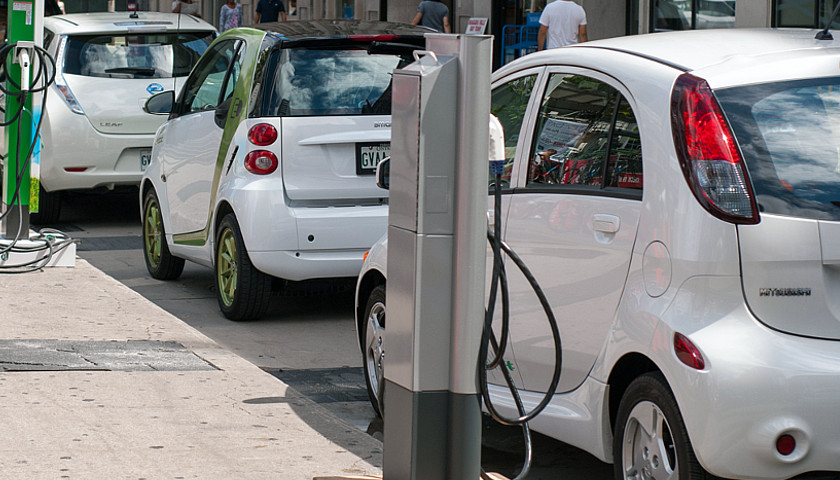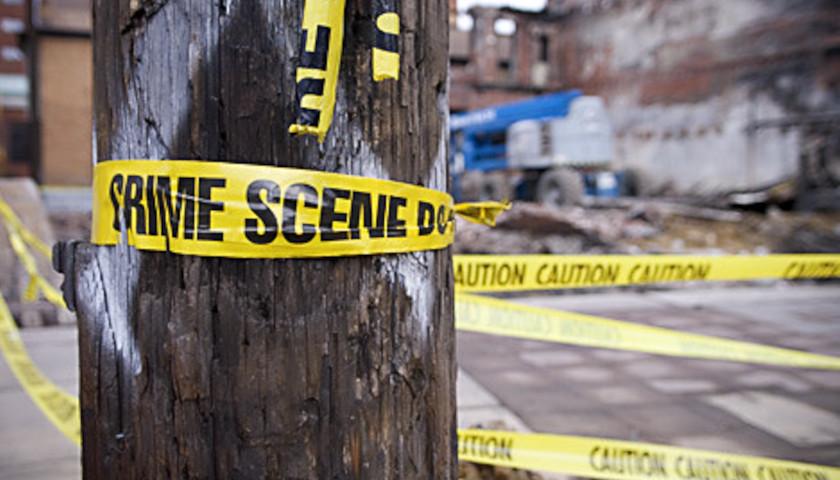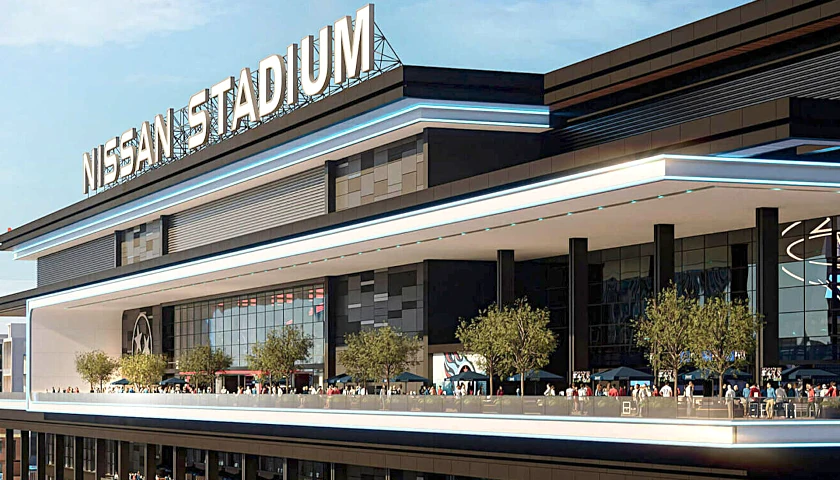Taxpayers have paid millions of dollars to help electric vehicle manufacturers not only get their products out on the road but also furnish electric car charging stations all over Nashville.
Prior reporting shows few people around Nashville appear to use these charging stations.
Yet officials with the Tennessee Valley Authority and the Nashville Electric Service expect more and more Nashville drivers will soon take up the habit of driving electric cars.
They’re preparing a study to gauge how Nashvillians can best prepare.
But must Music City drivers make way for more Chevy Sparks and Nissan Leafs?
According to a press release, FleetCarma, TVA, the NES, and the Middle Tennessee Electric Membership Corporation are launching something called SmartCharge Nashville.
The statement says people interested in buying EVs wonder how far they can drive before they need a charge. Utilities also need to prepare for more EVs on the road, the release said.
SmartCharge is supposed to help with both of those things.
No one at the NES returned The Tennessee Star’s requests for comment Friday.
But TVA spokesman Joshua Clendenen said the following in an emailed statement to The Star:
“While the adoption of electric vehicles inside the Tennessee Valley has been slower to develop than other areas, we are starting to see signs that more people would consider driving electric especially as more affordable vehicle options become available,” Clendenen said.
“In recent surveys, about 9 percent of Valley consumers indicated they plan to adopt these vehicles in the next two-to-five years, but many are looking for more vehicle choice including larger format vehicles like small and medium SUVs.”
As Tennessee Watchdog reported in 2015, Tennessee had 2,568 registered EVs on the road.
In three years, that number has increased, slightly, to 3,735 EVs. Davidson County, meanwhile, currently has 746 registered EVs, according to Kelly Cortesi at the Tennessee Department of Revenue.
Tennessee Watchdog reported in 2011 that most consumers have no desire to own an EV because they cost more than traditional vehicles and can only travel 100 miles before they need a recharge.
In 2013, Tennessee Watchdog, for several hours, monitored some of Nashville’s nearly 600 electric charging stations at three destinations — the Loveless Café, the Brentwood Public Library, and the Nashville Airport Marriott.
Not a single person showed up to use any one of them.
The private firm ECO-tality paid half of the $230-million costs to deploy those electric chargers in 21 cities throughout nine states, including Tennessee. Federal taxpayers paid the balance.
Also, the federal Department of Energy gave a $1.4 billion loan to Nissan several years ago to retool their already existing plant in Smyrna for Leaf production.
In 2010, as reported, state and federal officials announced generous tax breaks — up to almost $10,000 — for state residents who bought the Tennessee-made Leaf, meaning many customers would have to pay only $26,000 of the vehicle’s $36,000 cost.
The rebates were available only for the Nissan Leaf and not its competitor, the Chevy Volt, because of Nissan officials’ involvement with ECO-tality.
Meanwhile, as reported in 2015, Tennessee officials spent $181,250 to put up three charging stations for electric cars at the Nashville International Airport. In five weeks, only 29 cars charged up, for a flat fee of $2 each.
At that rate, the charging stations would have paid for themselves over 300 years’ time.
– – –
Chris Butler is an investigative journalist at The Tennessee Star. Follow Chris on Facebook. Email tips to [email protected].






[…] as The Star reported last fall, taxpayers have paid millions of dollars to help electric vehicle manufacturers […]
[…] As The Tennessee Star reported last fall, taxpayers have paid millions of dollars to help electric vehicle manufacturers get their products out on the road. Taxpayers have also paid for electric car charging stations all over the state. […]
The point of public charging stations in general is to make it convenient for EV drivers to come into the community and spend money. Public charging isn’t for local residents. Local residents generally do the majority of their charging at home. The idea that local charging stations are for local users is a common misconception by people who don’t drive EVs. Just like using charging stations is free and the government pays for most charging stations. These are myths. The vast majority of public charging stations are owned and operated by private enterprise. In the rare cases where the use of a charging station is free, it’s a loss-leader/gimmick by the business where the charger is located to bring in more business. Also, as a full-time EV driver I can tell you most EV drivers prefer to do business where chargers are present, regardless of whether or not we need to use them. As ranges have improved across all models of EVs more people are driving their EV into our area to visit. We live in the Nashville area and we travel to surrounding cities like Chattanooga and Huntsville that make it easy for us to visit. We avoid cities like Bowling Green where there is no convenient public charging.
There is a charging station in the Publix garage near me. I have NEVER seen a car parked in it and using it. What a joke and a waste of $$
The charger is probably either owned and operated by Publix or a contractor for Publix. It’s an advertising expense to bring in more EV drivers as customers. It probably does. The majority of EV drivers prefer to shop where charging is available, even if we don’t need it. How many EVs are in the lot and not at the charger? Public charging stations make it easier for out of town visitors to get a charge. Most locals charge at home and don’t need it.
Attention all tree huggers, please move to germany where you can worship mother earth and the sun/moon gods with fervour please. Your hippy lifestyle would be most welcomed there. Not so much here. Take Gore with you.
Does Al Gore head up this lunacy?
Using math from the delivery of our US ethanol mandate system, the net (loss) to consumers in Federal and State tax subsidies and delivering a lowered fuel MPG efficiency and higher pollution energy resource, it makes the installation of these electric charging stations seem like a perfectly sound investment. #FarmBureauBS
Nice work Chris Butler